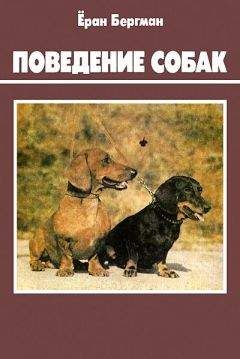Как живые: Двуногие змеи, акулы-зомби и другие исчезнувшие животные - Журавлёв Андрей Юрьевич
Grigg G. et al. Whole-body endothermy: ancient, homologous and widespread among the ancestors of mammal, birds and crocodylians. Biological Reviews, 2022, 97, 766–801.
Gutarra S., Rahman I. A. The locomotion of extinct secondarily aquatic tetrapods. Biological Reviews, 2022, 97, 67–98.
Gutarra S. et al. Effects of body plan evolution on the hydrodynamic drag and energy requirements of swimming ichthyosaurs. Proceedings of the Royal Society B, 2019, 286, 20182786.
Haridy Y. et al. Triassic cancer-osteosarcoma in a 240-million-year-old stem-turtle. JAMA Oncology, 2019, 7, E1–2.
Head J. J. et al. Giant boid snake from the Palaeocene neotropics reveals hotter past equatorial temperatures. Nature, 2009, 457, 715–8.
Head J. J., Polly D. Evolution of the snake body form reveals homoplasy in amniote Hox gene function. Nature, 2015, 520, 86–9.
Hecht M. K. The morphology and relationships of the largest known terrestrial lizard, Megalania prisca Owen, from the Pleistocene of Australia. Proceedings of the Royal Society of Victoria, New series, 1975, 87, 239–50.
Henderson D. M. Floating point: a computational study of buoyancy, equilibrium, and gastroliths in plesiosaurs. Lethaia, 2006, 39, 227–44.
Herrera-Flores J. A., Stubbs T. L., Benton M. J. Macroevolutionary patterns in Rhynchocephalia: Is tuatara (Sphenodon punctatus) a living fossil? Palaeontology, 2017, 60, 319–28.
Herrera-Flores J. A., Elsler A., Stubbs T. L., Benton M. J. Slow and fast evolutionary rates in the history of lepidosaurs. Palaeontology, 2022, 65, e12579.
Hocknull S. A. et al. Extinction of eastern Sahul megafauna coincides with sustained environmental deterioration. Nature Communications, 2020, 11, 2250.
Hou L.-H., Li P.-P., Ksepka D. T., Gao K.-Q., Norell M. A. Implications of flexible-shelled eggs in a Cretaceous choristoderan reptile. Proceedings of the Royal Society B: Biological Sciences, 2010, 277, 1235–9.
Houssaye A. et al. Three-dimensional pelvis and limb anatomy of the Cenomanian hind-limbed snake Eupodophis descouensi (Squamata, Ophidia) revealed by synchrotron-radiation computed laminography. Journal of Vertebrate Paleontology, 2011, 31, 2–7.
Houssaye A., Nakajima Y., Sander P. M. Structural, functional, and physiological signals in ichthyosaur vertebral centrum microanatomy and histology. Geodiversitas, 2018, 40, 161–70.
Huang J.-d. et al. The new ichthyosaurimorph Chaohusaurus brevifemoralis (Reptilia, Ichthyosauromorpha) from Majiashan, Chaohu, Anhui Province, China. PeerJ, 2019, 7, e7561.
Jamison-Todd S., Moon B. C., Rowe A. J., Williams M., Benton M. J. Dietary niche partitioning in Early Jurassic ichthyosaurs from Strawberry Bank. Journal of Anatomy, 2022, 241, 1409–23.
Jenkins X. A. et al. Using manual ungual morphology to predict substrate use in the Drepanosauromorpha and the description of a new species. Journal of Vertebrate Paleontology, 2020, 40 (5), e1810058.
Ji Q., Wu X.-c., Cheng Y.-n. Cretaceous choristoderan reptiles gave birth to live young. Naturwissenschaften, 2010, 97, 423–8.
Jiang B. et al. Extended embryo retention and viviparity in the first amniotes. Nature Ecology & Evolution, 2023, doi: 10.1038/s41559–023–02074–0.
Joyce W. G., Gauthier J. A. Palaeoecology of Triassic stem turtles sheds new light on turtle origins. Proceedings of the Royal Society B: Biological Sciences, 2004, 271, 1–5.
Kear B. P., Engelschiøn V. S., Hammer Ø., Roberts A. J., Hurum J. A. Earliest Triassic ichthyosaur fossils push back oceanic reptile origins. Current Biology, 2023, 33, R178–9.
Kelley N. P., Pyenson N. D. Evolutionary innovation and ecology in marine tetrapods from the Triassic to the Anthropocene. Science, 2015, 348, aaa3716–1–7.
Kelley N. P. et al. Grouping behavior in a Triassic marine apex predator. Current Biology, 2022, 32, 5398–405.
Kriloff A. et al. Evolution of bone microanatomy of the tetrapod tibia and its use in palaeobiological inference. Journal of Evolutionary Biology, 2008, 21, 807–826.
Kuznetsov A. N. Passive-dynamic walkers of the late Paleozoic. Ameghiniana, 2020, 57, 591–615.
Lagopoulos N. S., Weymouth G. D., Ganapathisubramani B. Effect of aspect ratio on the propulsive performance of tandem flapping foils. Flow, 2023, 3, E1–18.
Leal F., Cohn M. J. Developmental, genetic, and genomic insights into the evolutionary loss of limbs in snakes. genesis, 2017, e23077.
Li C., Fraser N. C., Rieppel O., Wu X.-C. A Triassic stem turtle with an edentulous beak. Nature, 2018, 560, 476–9.
Li P.-P., Gao K.-G., Hou L.-H., Xu X. A gliding lizard from the Early Cretaceous of China. Proceedings of the National Academy of Sciences of the USA, 2007, 104, 5507–9.
Lindgren J., Alwmark C., Caldwell M. W., Florillo A. R. Skin of the Cretaceous mosasaur Plotosaurus: implications for aquatic adaptations in giant marine reptiles. Biology Letters, 2009, 5, 528–31.
Lindgren J., Caldwell M. W., Konishi T., Chiappe L. M. Convergent evolution in aquatic tetrapods: Insights from an exceptional fossil mosasaur. PLoS ONE, 2010, 5 (8), e11998.
Lindgren J. et al. Skin pigmentation provides evidence of convergent melanism in extinct marine reptiles. Nature, 2014, 506, 484–8.
Lindgren J. et al. Soft-tissue evidence for homeothermy and crypsis in a Jurassic ichthyosaur. Nature, 2018, 564, 359–65.
Liu S. et al. Computer simulations imply forelimb-dominated underwater flight in plesiosaurs. PLoS Computational Biology, 2015, 11 (12), e1004605.
Liu Q.-L. et al. Rapid neck elongation in Sauropterygia (Reptilia: Diapsida) revealed by a new basal pachypleurosaur from the Lower Triassic of China. BMC Ecology and Evolution, 2023, 23, 44.
Longrich N. R., Bhullar B.-A. S., Gauthier J. A. A transitional snake from the Late Cretaceous period of North America. Nature, 2012, 488, 205–8.
Lü J., Kobayashi Y., Deeming D. C., Liu Y. Post-natal parental care in a Cretaceous diapsid from northeastern China. Geosciences Journal, 2015, 19, 273–80.
Lyson T. R., Bever G. S. Origin and evolution of the turtle body plan. Annual Reviews on Ecology, Evolution, and Systematics, 2020, 51, 143–66.
Lyson T. R. et al. Fossorial origin of the turtle shell. Current Biology, 2016, 26, 1887–94.
Maisch M. W. Revision der Gattung Stenopterygius Jaekel, 1904 emend. von Huene, 1922 (Reptilia: Ichthyosauria) aus dem unteren Jura Westeuropas. Palaeodiversity, 2008, 1, 227–71.
Maisch M. W., Matzke A. T. The Ichthyosauria. Stuttgarter Beiträge zur Naturkunde, Serie B (Geologie und Paläontologie), 2000, 298, 1–159.
Maisch M. W., Rücklin M. Cranial osteology of the sauropterygian Plesiosaurus brachypterygius from the lower Toarcian of Germany. Palaeontology, 2000, 43, 29–40.
Marek R. D., Moon B. C., Williams M., Benton M. J. The skull and endocranium of a Lower Jurassic ichthyosaur based on digital reconstructions. Palaeontology, 2015, 58, 723–42.
Martínez R. N., Simões T. R., Sobral G., Apesteguía S. A Triassic stem lepidosaur illuminates the origin of lizard-like reptiles. Nature, 2021, 597, 235–8.
Matsukawa M., Shibata K., Sato K., Xing X., Lockley M. G. The Early Cretaceous terrestrial ecosystems of the Jehol Biota on food-web and energy-flow models. Biological Journal of the Linnean Society, 2014, 113, 836–53.
Matsumoto R., Evans S. E. Morphology and function of the palatal dentition in Choristodera. Journal of Anatomy, 2016, 228, 414–29.




